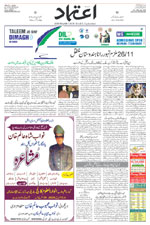Training may give you super-sized memory in 40 days: study
Thu 09 Mar 2017, 18:08:42

You can acheive a super-sized memory like that of a world champion, suggests a new study which found that the ability to perform astonishing feats of memory can be learned.
After 40 days of daily 30-minute training sessions using a strategic memory improvement technique, people who had typical memory skills at the start and no previous memory training more than doubled their capacity.
From recalling an average of 26 words from a list of 72, the participants were able to remember 62, researchers at Radboud University Medical Centre in The Netherlands found.
Four months later, without continued training, recall performance remained high.
Brain scans before and after training showed that strategic memory training altered the brain functions of the trainees, making them more similar to those of world champion memory athletes, researchers said.
"After training we see massively increased performance on memory tests," said Martin Dresler, assistant professor at Radboud University Medical Centre.
"Not only can you induce a behavioral change, the training also induces similar brain connectivity patterns as those seen in memory athletes," said Dresler.
Dresler,
who began the work at Stanford University School of Medicine in the US, examined the brains of 23 world-class memory athletes and 23 people similar in age, health status, and intelligence but with typical memory skills.
who began the work at Stanford University School of Medicine in the US, examined the brains of 23 world-class memory athletes and 23 people similar in age, health status, and intelligence but with typical memory skills.
He used functional magnetic resonance imaging (fMRI), a means of measuring brain activity by detecting blood flow changes inside the brain, to measure differences in the strengths of communications between brain regions. He used structural MRI to measure differences in sizes.
Initially, Dresler expected that memory champions might have notable differences in brain anatomy, the same way one might expect a world champion body builder to have unusually large muscles. Using structural MRI, however, they did not see differences.
The differences they detected between memory athletes and non-athletes were in connectivity patterns spread across 2,500 different connections in the brain. A subset of 25 connections most strongly differentiated athletes from those with typical memory skills.
The athletes Dresler studied were not born with exceptional memory skills. "They, without a single exception, trained for months and years using mnemonic strategies to achieve these high levels of performance," Dresler added.
No Comments For This Post, Be first to write a Comment.
Most viewed from Health
AIMIM News
Latest Urdu News
Most Viewed
May 26, 2020
Do you think Canada-India relations will improve under New PM Mark Carney?
Latest Videos View All
Like Us
Home
About Us
Advertise With Us
All Polls
Epaper Archives
Privacy Policy
Contact Us
Download Etemaad App
© 2025 Etemaad Daily News, All Rights Reserved.






























